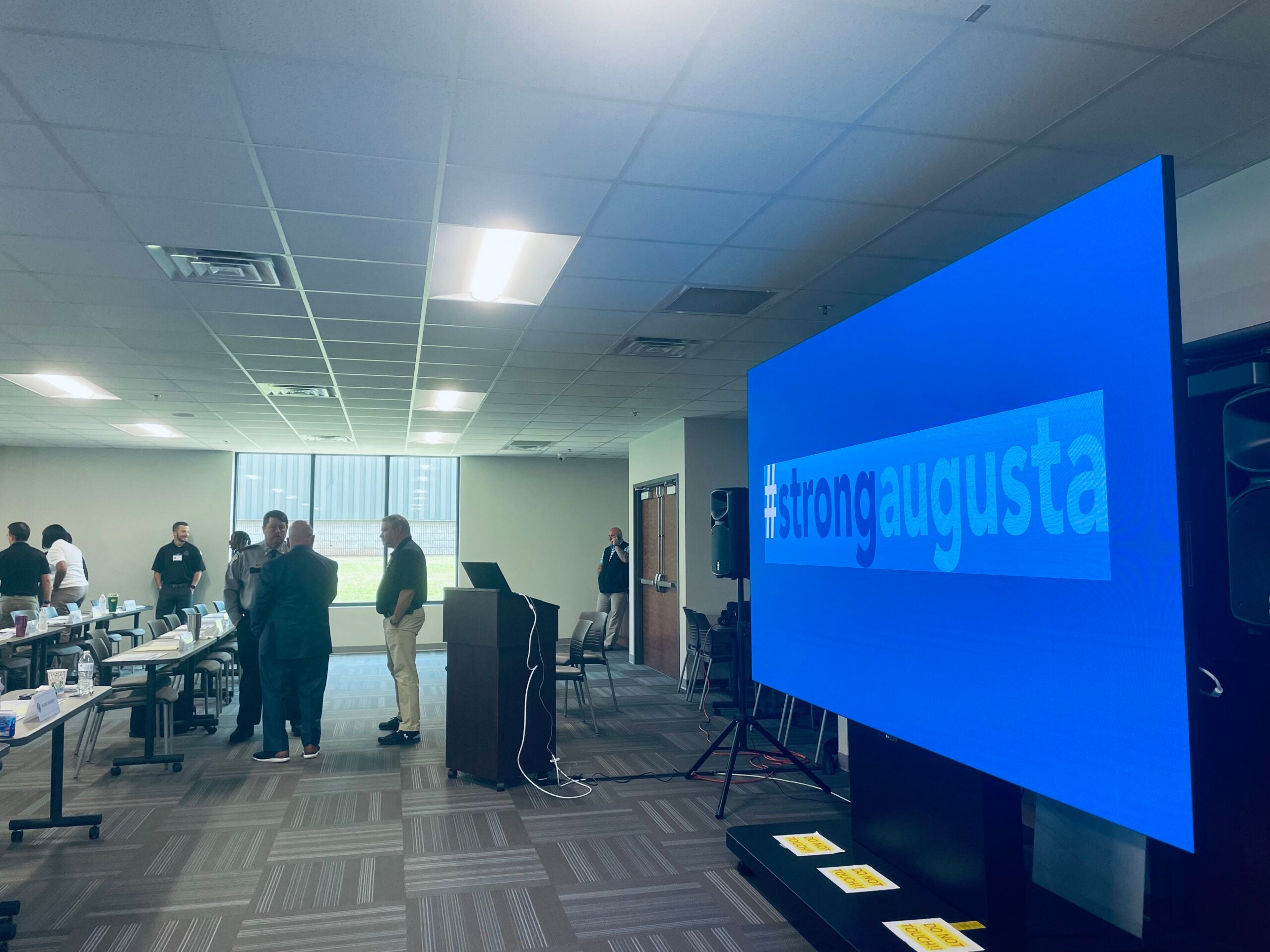Personnel from several local, regional and state agencies, including the sheriff’s departments of both Columbia and Richmond Counties, convened in Martinez, Wednesday morning, for a yearly discussion of how to coordinate and maintain resilience during emergency situations.
The Department of Homeland Security’s (DHS) Cybersecurity and Infrastructure Security Agency (CISA) partnered with #StrongAugusta, Augusta University’s community initiative to strengthen and maintain emergency preparedness, to organize a table exercise, or series of discussions, at the Columbia County School District facility on 4395 Riverwatch Parkway, which houses both the JA Discovery Center and the school district’s transportation department.
Law enforcement, emergency services and fire departments from both counties, Fort Gordon, Augusta University and Paine College, alongside leaders from the school districts, hospitals and local nonprofits, were among the stakeholders represented at the exercises, which comprised of presentations of complex emergency scenarios, such as active shooters, bomb explosions, a perpetrator driving through a parade, and other episodes of active, targeted violence.
Participants would then discuss the procedures their respective agencies and organizations have established to respond to such situations, explained John Ryan, emergency manager at Augusta University and executive director of #StrongAugusta.
“The scenario reveals itself sporadically over the four hours through facilitation by the DHS department,” Ryan said, noting that a central goal of the exercises is to expose and address gaps in response plans well ahead of encountering them during a real emergency or disaster. “How do they respond? How do you communicate? Has anybody told the hospitals this is going on? Are they prepared for that type of response?”
The deliberations that emerge among the participants aim of synchronizing procedures, says Zachary Williams, protective security advisor with the DHS office in Atlanta.
“While you can never be prepared for every single emergency or disaster that would take place, it certainly goes a long way in building coordination and collaboration,” said Williams, further explaining that the scenarios used in the exercises are drawn from active threat incidents that have occurred throughout the country, and tailored to the emergency response needs of a given community.
In 2018 the National Fire Protection Association (NFPA) published a standard program for Active Shooter/Hostile Event Responses (ASHER), called the NFPA 3000. That same year, Augusta became the first community to adopt the standard as part of its emergency response program. This also led to the launching of the #StrongAugusta initiative.
Ryan notes that many communities, after such tragic incidents, release hashtag slogans to promote community solidarity, mentioning examples such as Orlando Strong, Sandy Hook Strong, or Uvalde Strong.
“We are not, hopefully, prayerfully, ever going to be #AugustaStrong,” he said. “We are #StrongAugusta. It’s flipped around on purpose… We’re doing all of this before something horrendous happens here.”
Skyler Q. Andrews is a staff reporter covering business for The Augusta Press. Reach him at skyler@theaugustapress.com.









